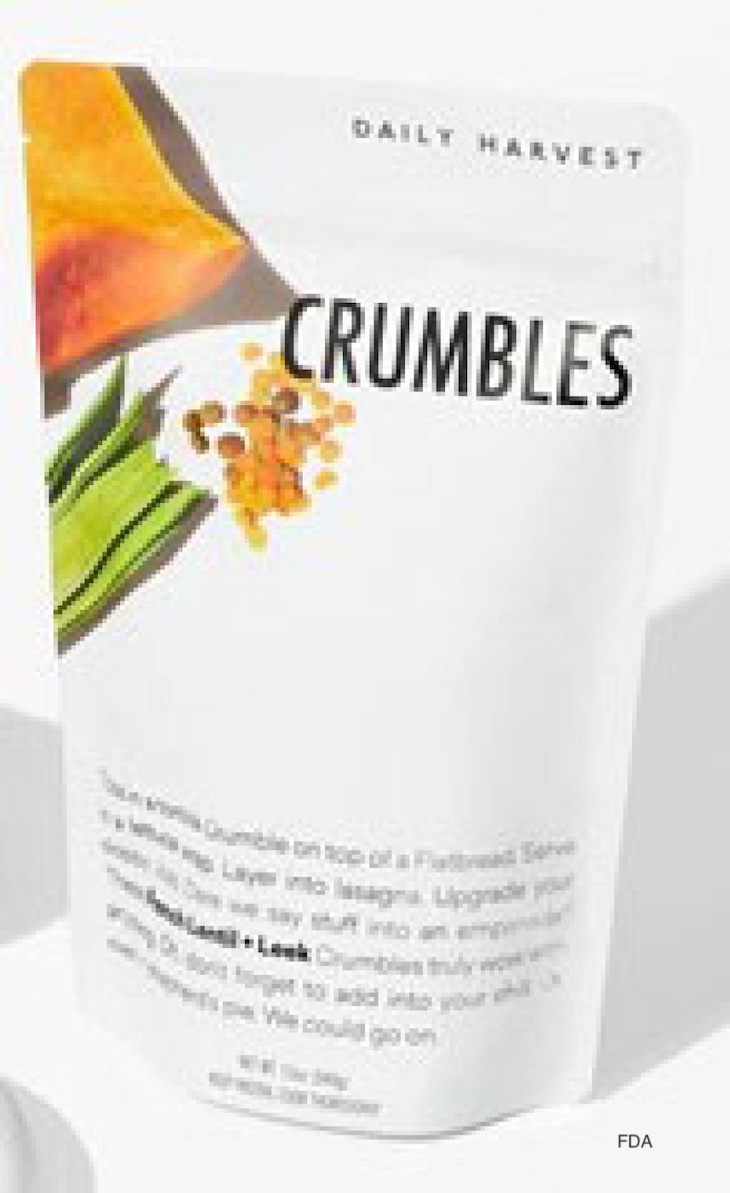Consumer Reports is advising consumers to skip products made with tara flour for now. That ingredient is a food additive that Daily Harvest says is the culprit causing more than 300 illnesses in consumers who ate that product. Anecdotal reports puts the number of illnesses closer to 500.

There is no actual information on what may be in that product that is causing the illnesses, with symptoms that suggest liver disease. At least 25 patients had their gallbladders removed. Symptoms include fever, fatigue, jaundice, vomiting, diarrhea, and high liver enzyme levels.
Dr. James E. Rogers, director of food safety and testing at Consumer Reports said in a statement, “Because the reported symptoms have been so severe and so little is known, we’re advising people to avoid tara flour until we understand what is causing the illnesses, and until consumers can be assured that any products containing tara flour in the wider market are safe.”
The Daily Harvest product has been tested for pathogens, toxins, heavy metals, chemicals, mycotoxins, and other possibly harmful agents, but nothing has been found. The FDA is working with Daily Harvest on this issue, and says that the process takes time. They also said that there are no guarantees that a definitive link between the food and the illnesses will be established.
Daily Harvest voluntarily recalled about 28,000 units of the crumbles. They were sold via online sales and home delivery, and through retail locations in Chicago and Los Angeles. The product is sold frozen.
Tara flour is made form the seeds of the tara tree which grows in South America. It is used as a plant-based form of protein, although it’s not commonly used in food products in the United States. Tara flour is considered a food additive, which is an ingredient added to food to preserve it, add flavor, or add nutrition.
Consumer Reports says that outside experts they consulted were not able to find tara flour listed as a food additive. Tom Neltner, senior director for safer chemicals at the nonprofit Environmental Defense Fund said in a Staten, “I can find no evidence that FDA ever reviewed tara flour for safety.”
The FDA allegedly would not answer questions posed by Consumer Reports about whether tara flour is an approved ingredient for use in food or whether it is on the GRAS (generally regarded as safe) list. A spokesperson told Consumer Reports, “regulatory status of a food has no bearing if a contamination happens because a food maker fails to follow good manufacturing practices, as they are required to.”
So look on the ingredient list of foods you buy to make sure that tara flour is not on it, for now. Ask whether any meal delivery services use it. And if you get sick after consuming food made with tara flour or tara protein, see your doctor.




